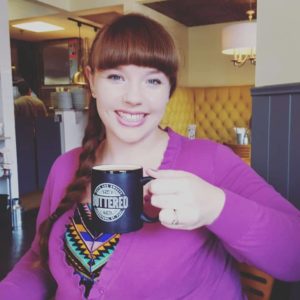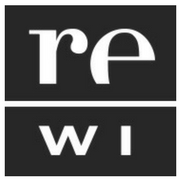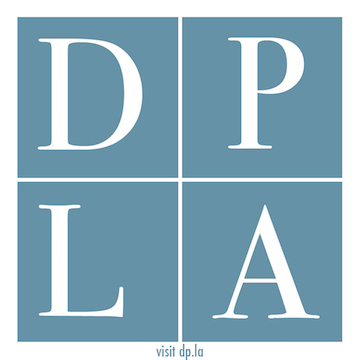For the past year, Digital Archives Assistant Dana Gerber-Margie worked with WiLS and Recollection Wisconsin on the NEH-funded project, Listening to War: Uncovering Wisconsin’s Wartime Oral Histories to identify, inventory, and plan for the digitization and preservation of hidden, at-risk audiovisual collections across Wisconsin. This year-long planning project sought out oral history collections that capture personal accounts of Wisconsin veterans and civilians during World War I, World War II, the Korean War, the Vietnam War, and the Persian Gulf War. Dana visited more than two dozen cultural organizations across Wisconsin to assess audiovisual materials and worked with the project partners to develop a plan to digitize, preserve, and share these oral histories online and pursue additional funding to put the plan into action.
As her grant-funded position came to a close, WiLS interviewed Dana about her experience.
 Tell us a little about your background. How did you come to this work?
Tell us a little about your background. How did you come to this work?
I’m originally from California, but moved to Wisconsin six years ago to attend the School of Library and Information Studies (SLIS) at UW-Madison. Most of my time in Wisconsin has been working in Madison in communications and audio archives, which I was able to translate into this amazing opportunity: getting to travel all over Wisconsin, visiting tremendous people at institutions big and small.
Tell us about a collection that really engaged you.
It’s hard to say, since by actually visiting the various institutions, getting to meet the managers, and touch and examine the collections, I felt a kind of kinship to each one. That said, it’s been really important to me to hear the stories that tell the full lived experience of war and all of its deep effects on society as a whole. I was really drawn to oral history collections that centered on women, the home front, underrepresented populations, and refugee experiences. Some notable collections that come to mind were of Stockbridge-Munsee Band of Mohicans veterans at the Arvid E. Miller Library-Museum, Holocaust survivors at the Jewish Museum Milwaukee, submarine workers at the Wisconsin Maritime Museum, women who served in World War II at UW-Green Bay, Hmong refugee settlement at the Chippewa Valley Museum, and a female veteran’s experience in the Persian Gulf War at UW-Eau Claire.
What surprised you? What unexpected things did you experience or uncover?
We went into this planning grant with expectations to inventory a lot of at-risk analog collections, such as recordings done on audio cassette, open reel, or VHS tapes, but instead found that probably the most at-risk material is born-digital recordings, which include formats like mp3, WAV, or Sony camcorder specific AVCHD. It was eye-opening about how much the future grant could assist with demystifying the most foundational of digital preservation strategies, for every type of cultural organization around Wisconsin.
From your work on this project, what do you see as bigger-picture issues facing the archival community and the archivist’s work?
Besides tackling digital preservation, there are two issues that rise to the top for me: the first concern being the need for more funding — for storage, supplies, and most importantly, fair labor. Preserving collections for the long term takes staff care, time, and energy! Every staff member deserves a living wage to do so.
Secondly, archivists everywhere have a responsibility to document the full diversity of experiences in their communities. This should absolutely be done with careful and respectful consideration of each community — and ideally in collaboration with the community! But it is absolutely essential for professionals to include the stories of all genders, all sexualities, all ethnicities, all religions, all income levels, because they all make up the community as a whole. Our work is so important for the future — include everyone!
What is your hope for the future of the work that you have done?
This grant was a Foundations grant from the NEH, which means that it was awarded to purposefully give us time to plan and assess the success of a bigger grant. It’s such a great and smart idea because so much work and thought have to go into a statewide project like this! My biggest hope for the future is that we’re awarded the second phase, the Implementation grant, which will let us carry out all of the work we’ve been planning. The NEH has been in the budget news a lot lately, but we’re truly hopeful!


